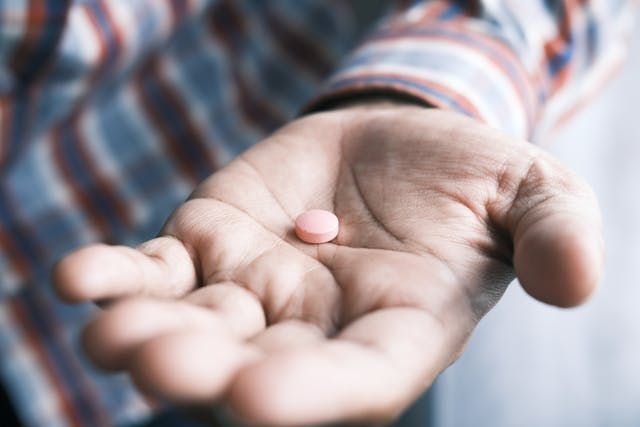Side Effects of GLP-1 Weight Loss Medications

Introduction
GLP-1 weight loss medications, such as Ozempic, are revolutionizing the way we approach weight management and diabetes control. GLP-1, or glucagon-like peptide-1, is a naturally occurring hormone that plays a key role in regulating blood sugar levels and appetite. These medications mimic the action of GLP-1, helping to enhance insulin secretion, slow gastric emptying, and reduce appetite. By harnessing the power of this hormone, GLP-1 medications offer a dual benefit: aiding in significant weight loss and improving overall metabolic health. Understanding how these medications work and their potential side effects is crucial for making informed decisions about their use.
Understanding GLP-1
GLP-1 Production
- GLP-1 (Glucagon-Like Peptide-1) is produced by enteroendocrine L-cells located in the lining of the small intestine (particularly the ileum) and the colon. It plays a role in glucose regulation and appetite control.
GLP-1 (Glucagon-Like Peptide-1) is a hormone that plays a crucial role in regulating blood sugar levels and appetite. It is primarily produced in the body by:
Where GLP-1 is Made:
- Enteroendocrine L-Cells: GLP-1 is primarily secreted by specialized cells known as L-cells, located in the lining of the small intestine (particularly the ileum and colon).
How GLP-1 is Made:
- Stimulus: GLP-1 is released in response to food intake, especially carbohydrates and fats. The presence of nutrients in the gut triggers the secretion of GLP-1 into the bloodstream.
- Function: Once released, GLP-1 enhances insulin secretion from the pancreas, inhibits glucagon release, slows gastric emptying, and reduces appetite, all of which contribute to better blood sugar control and weight management.
Brief Overview of GLP-1 Receptors
GLP-1 Receptors are specialized proteins located on the surface of various cells in the body. Here’s a quick summary:
Where GLP-1 Receptors Are Located:
- Pancreatic Beta Cells: Found in the pancreas, where they help regulate insulin secretion.
- Gastrointestinal Tract: Located in the lining of the stomach and intestines.
- Brain: Present in areas involved in appetite control.
- Heart and Blood Vessels: Found in cardiovascular tissues.
When GLP-1 Receptors Are Activated:
- Activation: GLP-1 receptors are activated when glucagon-like peptide-1 (GLP-1) binds to them. GLP-1 is released from the gut in response to food, mostly carbohydrate intake.
- Effects:
- Pancreas: Enhances insulin secretion and inhibits glucagon release.
- Stomach: Slows gastric emptying, leading to a gradual release of glucose into the bloodstream.
- Brain: Reduces appetite and promotes feelings of fullness.
- Heart: Can improve cardiovascular function and support blood vessel health.
In essence, GLP-1 receptors play a vital role in managing blood sugar levels, controlling appetite, and supporting overall metabolic health.
Symptoms that Contraindicate Weight Loss GLP-1 medications
- constipation
- abdominal pain
- nausea
- diarrhea
- fatigue
- allergic reaction
- dizziness
- hypoglycemia
- gallstones
- surgical complications
- thyroid cancer
- family history of pancreatic cancer
Common Side Effects of GLP-1 Weight Loss Medications
Constipation
- Why GLP-1 Weight Loss Medications Can Cause Constipation:
- Ozempic, a GLP-1 receptor agonist, can slow down gastric emptying and decrease intestinal motility. This slowing effect can lead to constipation as the movement of food through the digestive tract is delayed.
- Tips for Managing Constipation:
- Increase Fiber Intake: Incorporate more fiber-rich foods like fruits, vegetables, whole grains, and legumes into your diet to promote regular bowel movements.
- Stay Hydrated: Drink plenty of water to help keep your digestive system moving smoothly.
- Regular Exercise: Engage in regular physical activity to stimulate bowel function.
- Consider Laxatives: If dietary and lifestyle changes aren’t effective, consult with your healthcare provider about using over-the-counter or prescribed laxatives.
Abdominal Pain
- Reasons Behind Abdominal Pain as a Side Effect:
- Abdominal pain with Ozempic can occur due to the medication's effects on slowing gastric emptying and altering gastrointestinal motility. This can lead to bloating, gas, and cramping.
- Strategies to Alleviate Abdominal Discomfort:
- Eat Smaller, More Frequent Meals: Smaller meals can be easier on the digestive system and reduce discomfort.
- Avoid Gas-Inducing Foods: Limit intake of foods known to cause gas and bloating, such as beans, carbonated beverages, and certain vegetables.
- Warm Compress: Applying a warm compress to the abdomen can help soothe cramping and pain.
- Consult Your Healthcare Provider: If abdominal pain persists or is severe, discuss it with your healthcare provider, who may adjust your medication or offer other solutions.
Nausea
- Mechanism of Nausea Caused by Ozempic:
- Nausea is a common side effect of GLP-1 medications like Ozempic due to the slowing of gastric emptying. When food moves more slowly through the stomach, it can cause feelings of nausea and discomfort.
- Practical Advice to Reduce Nausea:
- Eat Slowly: Take your time to eat and chew food thoroughly to reduce the likelihood of nausea.
- Small, Frequent Meals: Consuming smaller meals more frequently can help manage nausea.
- Ginger or Peppermint: Ginger tea or peppermint candies may help soothe nausea.
- Hydration: Sip clear fluids like water or broth throughout the day to stay hydrated and help with nausea.
Diarrhea
- Causes of Diarrhea with GLP-1 Medications:
- Diarrhea can occur as a side effect of GLP-1 medications due to their impact on gut motility. The medication can increase the speed at which food moves through the digestive tract, leading to loose stools.
- Ways to Handle Diarrhea Effectively:
- Stay Hydrated: Drink plenty of fluids to replace lost fluids and electrolytes. Oral rehydration solutions or clear broths can be helpful.
- Eat Binding Foods: Incorporate foods that can help firm up stools, such as bananas, applesauce, and white rice.
- Avoid Irritants: Stay away from caffeine, alcohol, and spicy foods, which can aggravate diarrhea.
- Consult Your Healthcare Provider: If diarrhea is persistent or severe, consult your healthcare provider. They may suggest adjustments to your medication or other treatments.
Less Common but Notable Side Effects of Ozempic and GLP-1 Weight Loss Medications
Fatigue
- Understanding Fatigue as a Side Effect:
- Fatigue can occur with Ozempic due to the body adjusting to changes in blood sugar levels and the overall impact of the medication. Additionally, managing new gastrointestinal symptoms can contribute to feelings of tiredness.
- Suggestions for Maintaining Energy Levels:
- Balanced Diet: Eat a diet rich in whole grains, lean proteins, and healthy fats to support sustained energy throughout the day.
- Regular Exercise: Engage in regular physical activity to boost overall energy levels and improve sleep quality.
- Adequate Hydration: Drink enough water to stay hydrated, as dehydration can lead to fatigue.
- Rest: Ensure you get adequate sleep and manage stress effectively to reduce overall fatigue.
Allergic Reaction
- Signs of Allergic Reactions to Watch For:
- Symptoms of an allergic reaction can include rash, itching, swelling (particularly of the face, lips, tongue, or throat), difficulty breathing, and hives. Severe cases can lead to anaphylaxis, which is a life-threatening emergency.
- Immediate Steps to Take If an Allergic Reaction Occurs:
- Seek Medical Help: Contact your healthcare provider immediately or go to the nearest emergency room if you experience symptoms of a severe allergic reaction.
- Emergency Medication: If prescribed, use an epinephrine auto-injector (EpiPen) as directed by your healthcare provider.
- Avoid Future Use: Inform your healthcare provider about the allergic reaction so they can recommend alternative treatments or adjust your medication.
Dizziness
- Why Dizziness Might Happen:
- Dizziness can occur due to changes in blood pressure or blood sugar levels associated with the medication. Dehydration and gastrointestinal disturbances can also contribute to feelings of lightheadedness.
- Measures to Manage and Prevent Dizziness:
- Stand Up Slowly: When moving from a sitting or lying position to standing, do so slowly to prevent sudden drops in blood pressure.
- Stay Hydrated: Ensure you drink plenty of fluids to avoid dehydration.
- Monitor Blood Sugar: Regularly check your blood sugar levels to prevent sudden fluctuations that could cause dizziness.
- Consult Your Healthcare Provider: If dizziness persists, discuss it with your healthcare provider to determine the cause and appropriate management.
Hypoglycemia
- Explanation of Hypoglycemia Risk with Ozempic:
- Hypoglycemia (low blood sugar) can occur, particularly when Ozempic is used in combination with other medications that lower blood sugar levels. Symptoms to watch for include shakiness, sweating, confusion, and dizziness.
- Preventative Steps to Avoid Low Blood Sugar Episodes:
- Regular Monitoring: Check your blood sugar levels regularly to track any changes and adjust your medication as needed.
- Balanced Meals: Eat regular, balanced meals and snacks to maintain stable blood sugar levels.
- Emergency Plan: Carry a quick source of glucose, such as glucose tablets or juice, to treat hypoglycemia if it occurs.
- Medication Review: Work with your healthcare provider to adjust your medication regimen to minimize the risk of hypoglycemia.
Gallstones
- Connection Between Ozempic and Gallstones:
- GLP-1 medications like Ozempic can increase the risk of developing gallstones due to their effect on slowing gastric emptying and altering bile composition. Rapid weight loss associated with these medications can also contribute to gallstone formation.
- Symptoms of Gallstones and When to Seek Medical Help:
- Symptoms: Common symptoms of gallstones include severe abdominal pain (especially in the upper right side), nausea, vomiting, fever, and jaundice (yellowing of the skin or eyes).
- When to Seek Medical Help: If you experience any of these symptoms, contact your healthcare provider immediately. They can evaluate your condition and recommend appropriate treatment, which may include imaging tests or surgery if needed.
Surgical Complications
- Overview of Surgical Complications:
- If gallstones lead to surgical intervention, there are potential risks and complications associated with surgery, such as infection, bleeding, or injury to surrounding organs.
- Signs of Surgical Complications and When to Seek Help:
- Symptoms: Watch for symptoms such as severe pain, fever, persistent nausea or vomiting, and unusual swelling or redness at the surgical site.
- Immediate Action: Contact your healthcare provider immediately if you experience any of these signs. Prompt medical attention is crucial to address and manage surgical complications effectively.
Improving GLP-1 Levels Naturally
- Here are some lifestyle factors that can help improve GLP-1 levels naturally and potentially support weight loss, offering an alternative or complement to GLP-1 weight loss medications:
1. Healthy Diet
- High-Fiber Foods: Eating foods rich in fiber, such as fruits, vegetables, legumes, and whole grains, can help stimulate GLP-1 secretion.
- Protein-Rich Meals: Incorporating lean proteins like chicken, fish, tofu, and legumes can enhance GLP-1 release and promote satiety.
- Healthy Fats: Consuming sources of healthy fats, such as avocados, nuts, seeds, and olive oil, can support overall metabolic health and improve GLP-1 levels.
2. Regular Physical Activity
- Aerobic Exercise: Engaging in regular aerobic exercises, like walking, jogging, or cycling, can increase GLP-1 levels and improve insulin sensitivity.
- Strength Training: Incorporating resistance exercises, such as weight lifting or bodyweight exercises, can help enhance overall metabolic health and support GLP-1 function.
3. Weight Management
- Gradual Weight Loss: Achieving and maintaining a healthy weight through a balanced diet and regular exercise can positively influence GLP-1 levels and improve insulin sensitivity.
- Avoiding Rapid Weight Loss: Rapid weight loss can sometimes negatively impact metabolic hormones, so aim for steady, sustainable weight management.
4. Adequate Sleep
- Quality Sleep: Ensuring 7-9 hours of quality sleep per night supports overall hormonal balance, including GLP-1. Poor sleep can negatively affect hormone regulation and appetite control.
5. Stress Management
- Stress Reduction Techniques: Practices such as meditation, yoga, deep breathing exercises, and mindfulness can help manage stress, which in turn can positively affect GLP-1 levels and overall metabolic health.
6. Hydration
- Staying Hydrated: Drinking plenty of water throughout the day supports overall health and can help maintain metabolic processes, including those involving GLP-1.
7. Balanced Meals
- Regular Eating Schedule: Eating balanced meals and snacks at regular intervals can help regulate blood sugar levels and support GLP-1 secretion.
- Avoiding Overeating: Eating in moderation helps prevent excessive caloric intake and supports healthy weight management, which can positively influence GLP-1 levels.
Conclusion
In this discussion, we’ve explored the important aspects of GLP-1 weight loss medications, particularly Ozempic, including their common and less common side effects. We’ve seen how GLP-1 weight loss medications work to aid weight loss, from enhancing insulin sensitivity to slowing gastric emptying. Understanding these effects, both beneficial and potentially challenging, can help you navigate your treatment with greater awareness and confidence.
Recap of Key Points:
- Ozempic and Other GLP-1 Medications: These medications work by enhancing insulin sensitivity and slowing gastric emptying, which supports weight loss and blood sugar control.
- Common Side Effects: Constipation, abdominal pain, nausea, and diarrhea are some of the common side effects. Strategies to manage these include dietary adjustments, hydration, and consulting with your healthcare provider.
- Less Common Side Effects: Fatigue, allergic reactions, dizziness, hypoglycemia, and gallstones can also occur. Being vigilant about these side effects and seeking timely medical advice can help you manage them effectively.
- Improving GLP-1 Naturally: Lifestyle changes such as a healthy diet, regular physical activity, adequate sleep, and stress management can enhance GLP-1 levels naturally, providing an additional or alternative approach to medication.
Increase GLP-1 Levels Naturally:
Adopting a lifestyle that supports GLP-1 production—through balanced eating, exercise, and stress management—can be a powerful way to complement your treatment or, in some cases, reduce reliance on medication. If you are currently taking GLP-1 medication, always consult with your prescribing healthcare professional for personalized advice and adjustments to ensure the best outcomes for your health.












